The owner of Montford Deli, Asheville, NC, David Sweeting, apologized for comments about Anne Frank that generated controversy. “I want to apologize to the Asheville community… because of my stupidity.” Sweeting said that as a 9th-grade dropout, he had never heard the story of Anne Frank. After witnessing the hurt caused by his remarks, Sweeting decided to change that. “I bought the book yesterday,” Sweeting said. “I went into Barnes & Noble. I said, hey man, where is this book at? And they were like, it’s in the burned, banned book area, and I was like, burned, banned book area? What do you mean? They were like, these books were literally being burnt because they didn’t want you to know the atrocities that truly happened.”
A fact is information without emotion. An opinion is information shaped by experience. Ignorance is an opinion without knowledge. Stupidity is an opinion that rejects facts. – Anonymous
Diversity, Equity, Inclusion, and Belonging (DEIB) include people of various ethnicities and genders, including LGBTQ+, education, religious beliefs, and socioeconomic backgrounds. DEIB aims to ensure fair treatment, access, opportunity, and advancement for all while striving to identify and eliminate barriers.
Diversity is where everyone is invited to the party; Equity means everyone gets to contribute to the playlist, and Inclusion means everyone can dance. Businesses prioritizing DEI encourage a more innovative, positive environment, creating a more profitable company. And most importantly, it means we all get to dance! – Dr. Robert Sellers, University of Michigan
DEIB is entrenched and protected by the First Amendment, which guarantees freedom of speech. DEIB exposes the untold, untaught, ugly history of the United States. DEIB does reveal pain, shame, and discomfort.
On January 21, 2025, Trump issued an executive order directing federal agencies to terminate all federal DEIB programs, describing them as “public waste.” The order also encouraged private companies to follow suit, leading to a reevaluation of DEIB initiatives in both public and private organizations. The U.S. continues to pressure the U.N. to change its language and approach to DEIB.
The Conservative campaign against DEIB is so vague, ambiguous, and broad-based that it has come to mean many different things to many people. For some, it’s a forced mandate, required training, a bitter pill to swallow, and unnecessary shame. DEIB exposes privilege, especially if you are a white, heterosexual, Christian male. Affirmative Action, BIPOC, and LGBTQ+ are subtitles, triggers, and “woke” distract and undermine capitalism and the myth that America is the greatest nation on earth.
Citigroup, JP Morgan, Morgan Stanley, Pepsi, Disney, Deloitte, PBS, Google, Amazon, Meta, GE, GM, Ford, Accenture, Amtrak, Chipotle, The Smithsonian Institution, The Wall Street Journal, Target, Walmart, and the FBI have either eliminated, ended, scrubbed, or cut back on DEIB initiatives, offices, or observances.
GM removed the statement in their annual report, “At GM, we are committed to fostering a culture of diversity, equity, and inclusion.” Disney removed “for amplifying underrepresented voices” from their website and annual report. Pepsi removed all references to diversity a year after telling investors that “our culture of diversity, equity, and inclusion is a competitive advantage.” As I watched Super Bowl LIX, I saw the NFL announce the removal of the end zone message “End Racism” for this year’s Super Bowl and the replacement of “Choose Love.” If you are part of an organization that has decided to Un-DEIB, this YouTube video can help.
What does it say about you when you purchase goods and services from companies that no longer support DEIB?
If you are not a white, heterosexual, Christian male, you may need to keep looking over your shoulder to see what is coming. Your stress and anxiety have just gone up.
Got faith? All the major religions are founded upon DEIB.
In the Gospel, according to MAGA, embracing “DEIB” is the work of Satan and the enemy of all things American. DEIB is to blame for everything bad happening in America – airplane tragedies, military weakness, males turning into females, your pet becoming someone’s dinner.
Read the Jewish prophet Isaiah from Isaiah 61:1.
Jesus recalls Isaiah’s call in Luke 4:18, “…God’s Spirit is on me; he’s chosen me to preach the Message of good news to the poor, sent me to announce pardon to prisoners and recovery of sight to the blind, to set the burdened and battered free, to announce, “This is God’s time to shine!”
White Christian nationalism is a white-Christians-living-in-America-who-care-about-the-teachings-of-Jesus problem. – John Pavlovitz
From the Islamic Prophet Muhammad, “No Arab has any superiority over a non-Arab, nor does a non-Arab have any superiority over an Arab. Nor does a white man have any superiority over a black man, or the black man have any superiority over the white man. You are all the children of Adam, and Adam was created from clay” (al-Bayhaqi and al-Bazzaz). In this manner, Islam established equality for the entire human race and struck at the very root of all distinctions based on color, race, language, or nationality. According to Islam, God has given man this right of equality as a birthright. Therefore no man should be discriminated against on the ground of the colour of his skin, his place of birth, the race or the nation in which he was born.”
DEIB is an act of love founded on consideration and admiration. The opposite of love is fear. Could it be that fear drives the stopping of DEIB initiatives and work? Hate is rooted in fear.
I imagine one of the reasons people cling to their hates so stubbornly is because they sense, once hate is gone, they will be forced to deal with pain. – James Baldwin
Diversity, equity, inclusion, and belonging (DEIB) lean into compassion, justice, and humility. The work of DEIB requires you to desire to be human and recognize others, especially those whose gender, age, ethnicity, education, socio-economic status, physical and mental well-being, and beliefs are different from yours, are fully human as well. DEIB explores that our differences are our greatest strength and that multiculturalism is a powerful asset.
The work of DEIB begins by getting out of your comfort zone and confronting your ignorance, denial, bias, and privilege.
Ignorance. Do you know the untold history of the United States? Learning the untold history of the United States can help you understand why Black infant mortality is 2.5 times greater than white infant mortality. It will help you to understand why the average wealth of a white family in America is ten times greater than the average wealth of a Black family and why the average white male will live 5 years longer than the average Black male.
Bias. Unconscious and confirmation bias promote the more an individual is “white-passing,” the less interesting they become. Unconscious and confirmation bias nurture stereotypes that Asians are successful because their culture uniformly pressures them to perform well. We judge by visual and auditory cues rather than by character.
Asian Americans face DEIB issues as racial and ethnic minorities are considered overrepresented in higher education. A common comment I have encountered is that Asian Americans “would be nowhere without black people.” Asian Americans and Pacific Islanders are often underrepresented in DEIB conversations and in the very positions that might advocate for better representation.
“When I hear the phrase, ‘Asians are next in line to be white,’” she writes, “I replace the word ‘white’ with ‘disappear.’ Asians are next in line to disappear.” – Cathy Park Hong, Minor Feelings
DEIB’s work has created restrooms for families and men’s restrooms with baby changing tables and ADA. DEIB stimulates creativity and innovation. Creativity can exceed expectations when a diverse group of people with diverse skills, backgrounds, and outlooks on life work together. DEIB has led to infrastructure that mirrors the community. A 2017 study found that businesses that invested in DEI also saw increased sales and reduced employee turnover.
DEIB asks us to look in the mirror and ask tough questions like:
Why do I put up with monuments, buildings, streets, and military bases named after traitors to the U.S. Constitution?
What am I doing for others who are different from me?
Why only read and follow people who look, think, believe, and act like me?
What is the difference between Black Lives Matter and All Lives Matter? (Consider this: If Black Lives Matter bothers you because it doesn’t say ALL Lives Matter and it doesn’t say Blue Lives Matter doesn’t bother you, then what bothers you is the word Black.)
If my significant other, feeling low, comes to me and asks, “Do you love me?” an answer of “I love everyone” would be truthful, but it would also be hurtful and cruel at the moment. If a cohort comes to me upset and says, “My father just died,” a response of
“Everyone’s parents die” would be truthful but hurtful and cruel in the moment. So when a friend speaks up in a time of obvious pain and hurt and says, “Black lives matter,” a response of “All lives matter” is truthful. But it’s hurtful and cruel at the moment.
Here is what I know for sure: We are imperfect, flawed, and “cracked.” The ancient Japanese art of kintsugi (joining with gold) acknowledges and embraces the imperfection of missteps in life. It is a philosophy of embracing human flaws. DEIB is a form of kintsugi. It exposes the human frailty of life. DEIB asks us to accept our scars and imperfections, a powerful lesson in humanity and sustainability.
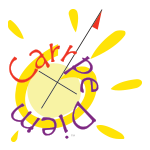
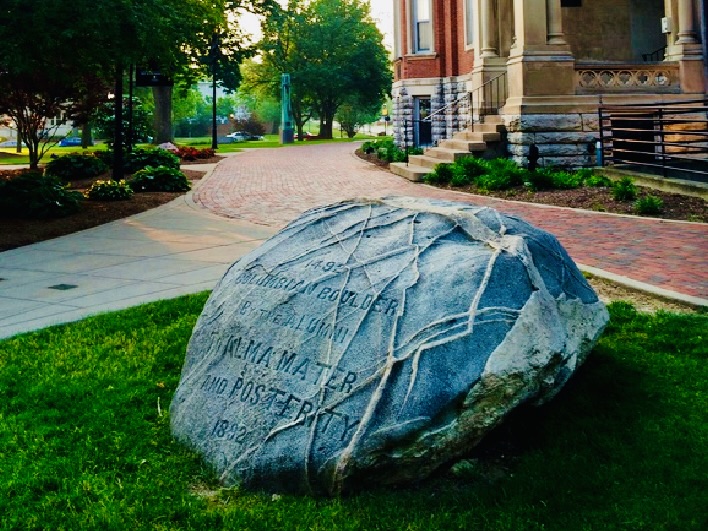


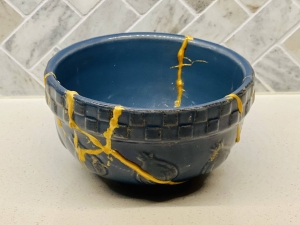
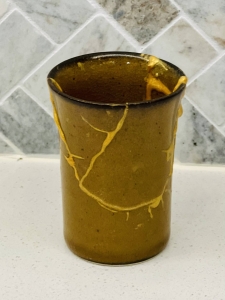
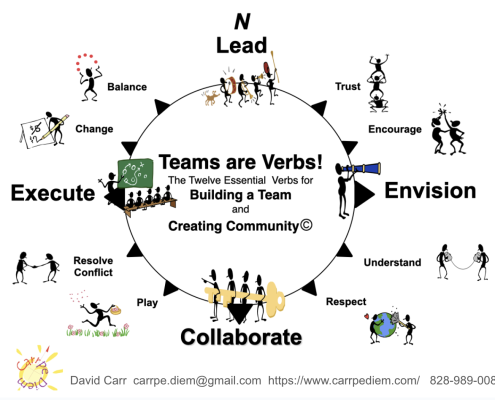 In my Teams Are Verbs© circle, trust is among the twelve essential verbs for creating a team and building a community. Everything begins with trust, including relationships, processes, operations, performance, and strategic plans. Trust has always been the opening conversation in any organizational development program or retreat I facilitate. Trust is my first conversation in leadership coaching, beginning with two essential questions: Are you trustworthy? What is your evidence?
In my Teams Are Verbs© circle, trust is among the twelve essential verbs for creating a team and building a community. Everything begins with trust, including relationships, processes, operations, performance, and strategic plans. Trust has always been the opening conversation in any organizational development program or retreat I facilitate. Trust is my first conversation in leadership coaching, beginning with two essential questions: Are you trustworthy? What is your evidence?


